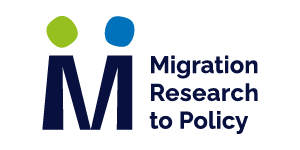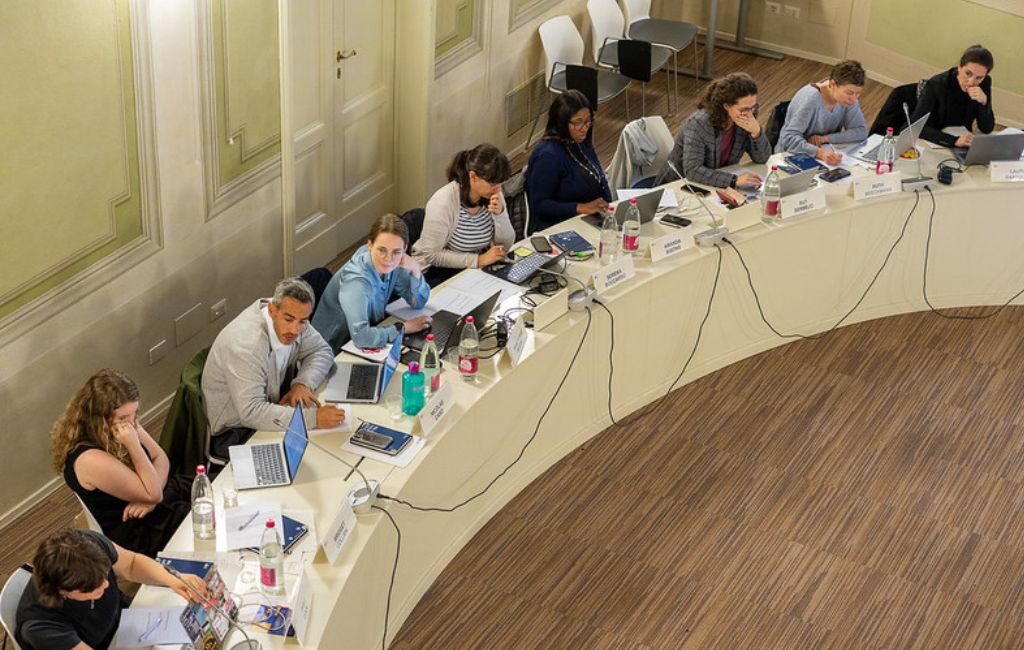
Engagement hub
Internal displacement in Iraq: the role of relevant, iterative and applied research
Author
About
Valentina Bacchin and Bradley Mellicker
engagement approaches
In crises, influencing policymaking requires more than just data—it demands trust, relevance, and actionable solutions. Our work with the International Organization for Migration (IOM) in Iraq demonstrated how research, when strategically designed and communicated, can help support government action on internal displacement.
In this short, we’ll show how, by aligning evidence with policy priorities and integrating tested solutions, we contributed to shaping responses to Iraq’s latest large-scale displacement crisis.
Creating space to influence policymaking in crises
In 2019, the Iraqi Federal Government sought policy solutions to high levels of internal displacement. In December 2019, 1.44 million people were still internally displaced; 64% had left their homes in 2014. Almost one million additional people had spontaneously returned since the Government declared the end of the war against ISIL in December 2017, but the rate of return slowed down dramatically by the end of 2018. It was apparent that quantitative data collection, despite its robustness, didn’t allow for a sufficiently detailed understanding of the needs and aspirations of affected people.
We produced data that spoke directly to people’s experiences and government priorities, most notably the living conditions in IDP’s areas of origin or areas of integration. Our data gave a more comprehensive and up-to-date understanding of these conditions, which supported reconstruction in general and specific solutions.
- We developed a Return Index that systematically and regularly analysed conditions in areas of origin to understand barriers to return and, at the same time, support resource prioritisation and allocation by location and sector.
- Through targeted one-off research, we analysed barriers to return within Iraq and experiences of local integration, ranging from tangible, resource-based challenges, such as housing, livelihoods, and essential services, to more intangible challenges, such as insecurity, community tensions, and psychosocial trauma.
- We gathered household-level information about preferences regarding solutions and progress towards integration and associated challenges.
Research to promote tested alternatives for policy and practice
Building on our data, we developed a pilot programme to address the specific barriers faced by IDPs. This allowed proactive approaches to support IDPs in overcoming the causes of their protracted displacement and, at the same time, contributed to government policies related to ending internal displacement. Bridging this gap and doing so in a way that met international standards was challenging but ultimately successful as it presented viable solutions to the government.
While creating innovative approaches to evidence and data was beneficial, using that data in ways that could influence government policies vis-à-vis solutions was fundamental. Put differently, the data presented an objective basis on which policies could be designed, but it was important for data to speak to government policy preferences and constraints.
We sought to engage with the government in ways that would present the evidence we generated, painting a picture of substantial challenges faced by a large segment of the remaining displaced population. However, we were also able to leverage the data in our interactions by proposing operational approaches to support IDPs in overcoming the challenges they faced by preparing for their departure from camps or other areas and enabling their return or relocation to be safer and more sustainable. Being able to speak to policy priorities and political constraints faced by the government was instrumental in convincing government actors to integrate the challenges into their planning.
What we learned
- In rapidly evolving contexts, ensure research speaks to topical issues: carry out iterative research and modify research considering significant policy changes or critical events. The use of longitudinal studies and periodic data collection, combined with the ability to dive into specific dynamics as they emerged, ensured that we could provide evidence in a timely manner and be relevant to policy-making processes.
- Shape the research so that recommendations will be able to speak to existing or upcoming government policies or objectives by working closely with policy practitioners or policymakers. In Iraq, we made sure that we understood both policy preferences and structural constraints that the government faced, and we reflected this awareness on research outputs and programmes.
- Create a shared understanding of the problem and its dimensions with the intended interlocutor(s). Seek to engage authorities in the research design and consider the government’s evidence and priorities wherever possible, including understanding and incorporating government political and policy constraints. In Iraq, we were able to work closely with the government to ensure that the data we produced would speak directly to government policy priorities, such as the data from the Return Index on conditions in areas of origin.
- In rapidly evolving contexts, ensure research speaks to topical issues: carry out iterative research and modify research considering significant policy changes or critical events. The use of longitudinal studies and periodic data collection, combined with the ability to dive into specific dynamics as they emerged, ensured that we could provide evidence in a timely manner and be relevant to policy-making processes.
Cover photo: 13 June 2023, departure from camp in Dohuk, Iraq. Provided by IOM staff.
Valentina Bacchin is a Policy Leader Fellow at the EUI School of Transnational Governance, where her research focuses on solutions to forced migration, building on her work with IOM, Oxfam, and IRC across multiple countries and displacement situations.
Bradley Mellicker is the Head of IOM’s Climate Mobility Innovation Lab in Asia and the Pacific. Prior to this position, he worked with IOM in Iraq, Guinea, Cameroon, Philippines, Haiti, and Timor-Leste, focusing on a broad range of displacement issues.
Submit your idea for a ‘short’ to be featured on the Co-Lab.












